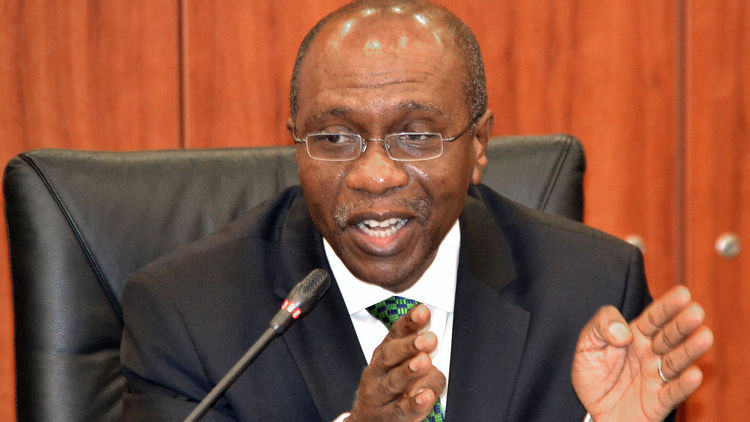- Central Bank to Mop Up N123.5bn
The Central Bank of Nigeria (CBN) is expected to continue its open market operations (OMO) mop up as N123.5 billion maturing instrument hits the market this week.
Despite system liquidity in deficit on all trading days of the week, the central bank continued with its daily OMO mop-ups, which took place on four days of the week.
Also, activities in the treasury bills market stayed soft last week on account of the weaker liquidity levels.
A breakdown of the activities during the week by Afrinvest West Africa Limited, showed that on Monday, average rate on benchmark tenors settled at 17.6 per cent, marginally down by one basis point, from the preceding Friday, as buy sentiment on shorter tenored instruments offset the impact of sell offs recorded across longer-dated bills.
It also showed that on Wednesday, there was a treasury bills maturity of N140.9 billion, which was rolled over at the primary market auction (PMA).
Also, the CBN offered N28.1 billion of the 91-day (subscription: N23.3 billion, allotment: N22.8 billion); N23.7 billion of the 182-day (subscription: N33.2 billion, allotment: N24.7 billion); and N89.1 billion of the 364-day (subscription: N502.9 billion, allotment: N168.4 billion) instruments at marginal rates of 13.2%, 16.8% and 17.0% respectively.
It noted that due to lower stop rates at the treasury bills PMA and excess subscription for longer dated bills offered, sentiment was bullish last Thursday as average rate eased to 17.4 per cent, but increased to 17.5 per cent on Friday, down 0.2 per cent week-on-week.
“In the coming week, we expect rates to remain at similar levels as an OMO maturity worth N123.5 billion hits the system, although we believe the CBN will continue with its OMO mop up,” it added.
A member of the CBN’s Monetary Policy Committee (MPC), Dr. Doyin Salami had in his personal comment at the last MPC meeting, released last week, expressed concern that the most challenging issue in the economy was the adoption of a quantitative easing (QE) stance by the management of the central bank.
Salami had said: “It is clear that the CBN has provided ‘piggy bank’ services to the federal government. To prevent the effect of continuous and massive injections of cash to fund the federal government showing up in sharply higher inflation and currency weakness, the central bank now applies ‘special auctions’.
“We thus find ourselves at a point where government borrowing from the CBN is ‘neutralised’ by raising the Cash Reserve Requirement (CRR) of banks, thereby limiting private sector access to credit. In other words, the private sector is deliberately ‘crowded-out’.
“It is ironic that the government, in need of tax revenues – having in the first half of the year accumulated its full-year deficit – is constraining the private sector,” he had added.
But the Chief Executive Officer of Financial Derivatives Company Limited, Mr. Bismarck Rewane, said on Thursday that the continuous and massive injections of cash by the central bank to fund the federal government’s expenditure through ways and means (or quantitative easing) would help reflate the economy, stressing that there was no easy way out of a recession.


 Forex3 weeks ago
Forex3 weeks ago
 Naira3 weeks ago
Naira3 weeks ago
 Billionaire Watch3 weeks ago
Billionaire Watch3 weeks ago



 Naira3 weeks ago
Naira3 weeks ago






 Naira3 weeks ago
Naira3 weeks ago




 Naira2 weeks ago
Naira2 weeks ago




 Naira4 weeks ago
Naira4 weeks ago






 Naira2 weeks ago
Naira2 weeks ago























